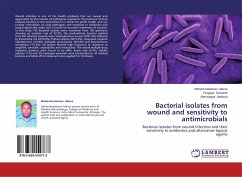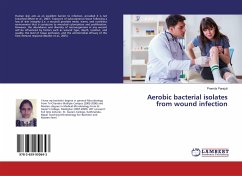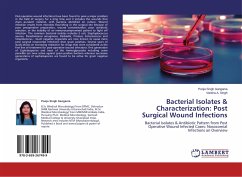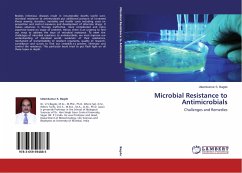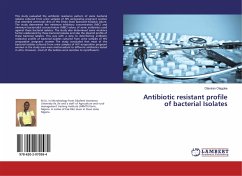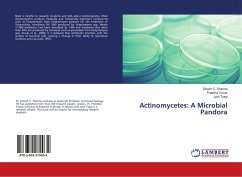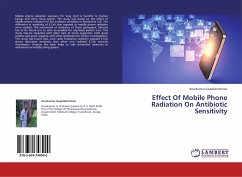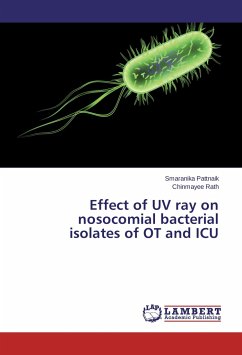Wound infection is one of the health problems that are caused and aggravated by the invasion of pathogenic organisms. The presence of drug resistant bacteria in the environment is a threat for public health, and up-to-date information on local pathogens and sensitivity to antibiotics and topical agents like acetic acid is crucial for successful treatment of wounds. In this study 145 bacterial isolates were recovered from 150 specimens showing an isolation rate of 87.3%. The predominant bacteria isolated from the infected wounds were Staphylococcus aureus 47(31.4%) followed by Escherichia coli 29(19.4%), Proteus species 23(15.4%), Coagulase negative Staphylococci 21(14%), Klebsiella pneumoniae 14(9.4%) and Pseudomonas aeruginosa 11(7.4%). All isolates showed high frequency of resistance to ampicillin, penicillin, cephalothin and tetracycline. The overall multiple drug resistance patterns were found to be 64%. Acetic acid (0.5%), Dabkin solution (1%) and 3% hydrogen peroxide were bactericidal to all isolated bacteria and lethal effect observed when applied for 10 minute.
Bitte wählen Sie Ihr Anliegen aus.
Rechnungen
Retourenschein anfordern
Bestellstatus
Storno

